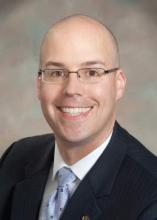WASHINGTON – Coming regulations to implement the MACRA legislation also could include sweeping reforms to meaningful use and quality reporting programs, said Dr. Steven J. Stack, president of the American Medical Association.
Dr. Stack expressed “cautious optimism” that the regulations would help doctors to return to focusing on treating patients and away from meeting the myriad of regulatory requirements that have piled up in recent years.
The AMA has been working closely with the Centers for Medicare & Medicaid Services “very candidly and very constructively” and the agency has “demonstrated a willingness to reconsider things,” Dr. Stack said at the AMA National Advocacy Conference.
The regulations to implement MACRA (the Medicare Access and CHIP Reauthorization Act of 2015) “offers CMS an uncommonly robust opportunity to take things like [the Physician Quality Reporting System], meaningful use, value-based purchasing and reconceptualize, now that we have the opportunity under one rulemaking, to say how should all of these really work together,” Dr. Stack said.
Indeed, during a keynote address at the AMA conference, CMS Administrator Andy Slavitt said one of the goals for the agency this year was to simplify things for doctors.
“We must reduce burden and give physicians back more time to spend with patients,” Mr. Slavitt said. “Several years ago, we launched an initiative that is reducing regulatory burden and saving hospitals $3.2 billion over 5 years. But we are barely scratching the surface. We have a strategic effort this year designed to reduce burden and create efficiencies in the physician’s office.”
He hinted that the MACRA regulations would be used to redefine how health IT is utilized, noting the emphasis will be on rewarding outcomes that technology helps achieve, rather than simply incentivizing the use of it; providing more flexibility to meet physician needs; leveling the playing field to allow more competition from vendors; and to address ongoing interoperability issues.
The concern Dr. Stack addressed during the press meeting was the ongoing opioid epidemic, one of the few things he expects to see legislative action on during this presidential election year.
He called for thoughtful, comprehensive solutions to addressing the problem so that it allows patients with a true medical need for chronic pain management to be able to continue to have access to needed prescription pain medications. Arbitrary prescribing caps and other fixes that, on the surface, are simple and easy to implement, should be avoided, he said.
“Those kinds of approaches for this problem could have the really undesired consequences of rather than solving the problem,” Dr. Stack said, adding that they could drive even more people from prescription pills to heroin. That “causes deaths far more rapidly than the other stuff, which takes tens of millions of Americans with legitimate chronic pain who are legitimately suffering and throwing them into horrific life problems without access to care they need.”
As an adjunct to that, Dr. Stack also addressed drug pricing, using naloxone, which is used to help patients experiencing and opioid overdose, as something that has skyrocketed in price.
In looking at 5 years of drug prices in his state of Kentucky, naloxone has gone up from just over $4.50 a pill in 2010 to $38 a pill in 2015.
“If there is one thing that I will be absolutely clear on as a physician in the United States, this is not the time for the pharmaceutical industry to play games in the midst of an epidemic that taking over a quarter-million people’s lives over the documented course of this problem,” Dr. Stack said. “This is the time for the pharmaceutical industry to do its part and make sure that naloxone is as cheap as water from a tap so that patients in need can get the care they need and have this life-saving drug. This is not a profiteering opportunity for anyone.”


